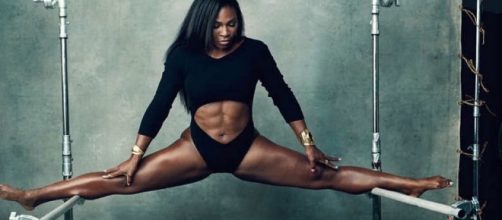35-year-old professional tennis player Serena Williams wasn’t always confident in her fit figure. The athlete recently had a televised talk with an old flame of hers, Oscar award-winning rapper Common, who served up some questions for her during an insightful interview on the ESPN show "The Undefeated." The two discussed various topics. One in particular was her physical appearance. She shared that she once sided with those critical of her fit and muscular figure. At one point in her athletic career, she wasn’t accepting of the build of her body.
But she recognized that she needed to change her outlook on what on-lookers saw as a flaw.
Self-love
As the champion of 23 grand slams and four Olympic gold medals, Williams turned the criticism into something positive. She began accepting herself for who she was as time went on. Rather than continuing to have the perspective that she was "too built," she started understanding that she didn’t have to live up to everyone else’s standard of beauty. Williams decided to flip the opinions around and realized that it was her body that had gotten her several wins in tennis matches, allowing her to rise to a number one spot in the sport.
She was eventually able to accept her body as it was since her parents raised her and her sisters to have self-love.
Newly engaged Serena Williams began playing professional tennis at the young age of 14. When she was 17, she stopped giving media coverage about her the time of day. Now, she is glad that "muscles on women" has become a trend, as more guys see it as a desirable feature in women.
Sexism in sports
The two touched on the prevalent issue of sexism. Because sports has always been viewed as "a man’s thing," Williams has had to deal with instances of sexism when it came to her being considered the best compared to all other successful athletes. She said that if she was a male, she would have been dubbed the G.O.A.T., a long time ago. Williams and Common even conversed about racism, another issue relevant to today’s society.
After Common introduced another prevalent issue into the conversation, the subject of racism, sharing his first experience with it as a young child, Williams told of a time in her youth when she and her sister Venus were being teased because of their skin color by Caucasian children while they were working on their tennis-playing skills at a Compton court where mostly Caucasians would play. Williams didn’t let the bullying bother her, and pretty much ignored the occurrence because she didn’t think it deserved her attention.

